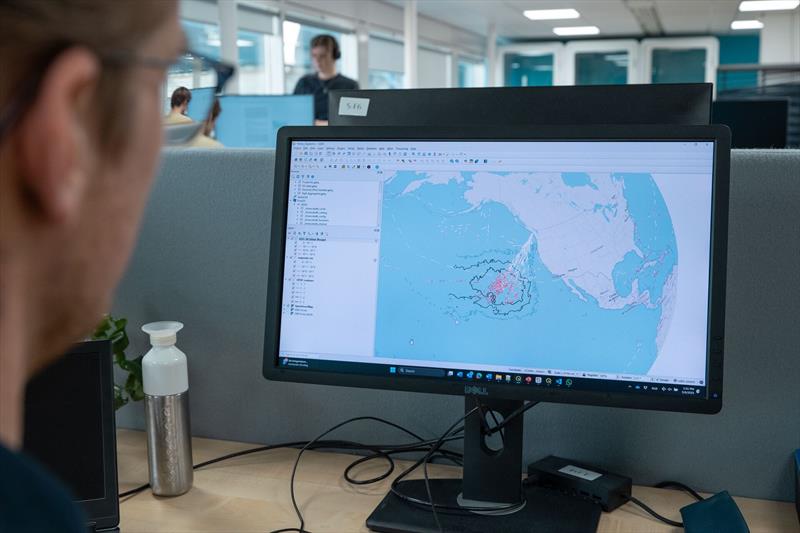
Call for sailors to become Pacific plastic hunters this summer
by Robin Clegg 12 Jun 2025 08:16 UTC

Call for sailors to become Pacific plastic hunters this summer © The Ocean Cleanup
The Ocean Cleanup is calling on sailors out in the Pacific, anywhere between California and Hawaii this summer, to take part in its research expedition to help map plastic in The Great Pacific Garbage Patch (GPGP).
This summer the Dutch non-profit is looking to track the patch, the world's largest accumulation of floating plastic, using cutting edge and AI technology so they can clean it more efficiently in the future.
Sailors willing to fit the AI cameras and use GPS trackers on their leisure trips or during regattas can advance understanding of the patch's composition to help future cleanup efforts.
The organization, whose mission is to rid the world's oceans of plastic, has removed more than one million pounds of trash from the GPGP over the past four years.
Estimated to contain around 100,000 tons of plastic, the GPGP covers an area twice the size of Texas and is mostly comprised of ghost nets and other fishing gear, complemented by a wide array of plastic pieces dating back to the 1960s.
Automatic Debris Imaging System: ADIS
Those taking part will be given an innovative AI camera called an Automatic Debris Imaging System (ADIS), to monitor and map the distribution of the plastic debris. All they have to do is simply install a camera at the highest possible point on their vessel, make sure it faces the ocean surface and ADIS will do the rest.
The lightweight cameras will take photos of plastics afloat at sea and send the data back to The Ocean Cleanup HQ in Rotterdam, The Netherlands. This will enable the organization to map plastic hotspot concentrations and use predictive software to track their movement using ocean circulation, wave and wind data.
Ghost Net Hunter: GPS Trackers
Other ways that the boats can help to advance understanding of this remote stretch of ocean is by using GPS tracking buoys, to tag lost, or abandoned, fishing gear and ghost nets. This will also help track and model where these large items are floating and pinpoint them for smart, targeted, future cleanup efforts. As a ghost net hunter, participants will be asked to attach the trackers to abandoned fishing gear found at sea and release them.
Laurent Lebreton, Head of Research at The Ocean Cleanup, said: "The GPGP is an ever-moving plastic soup that is impeding the ocean's ability to help regulate the climate and is harmful to marine life."
"Technology has a big part to play in the future ocean cleanup. The strategic integration of remote sensing from ships, drones, and satellites as well as the use of AI and particularly machine learning can revolutionize the detection, tracking, and removal of plastic debris."
"To help us better target our extraction operations and clean up the patch more effectively and economically, we need to understand where the high concentrations of plastic are located. The sailing community can become citizen scientists and boost our efforts to solve this environmental crisis by signing up and being part of the solution."
Find out more and sign up to take part here.